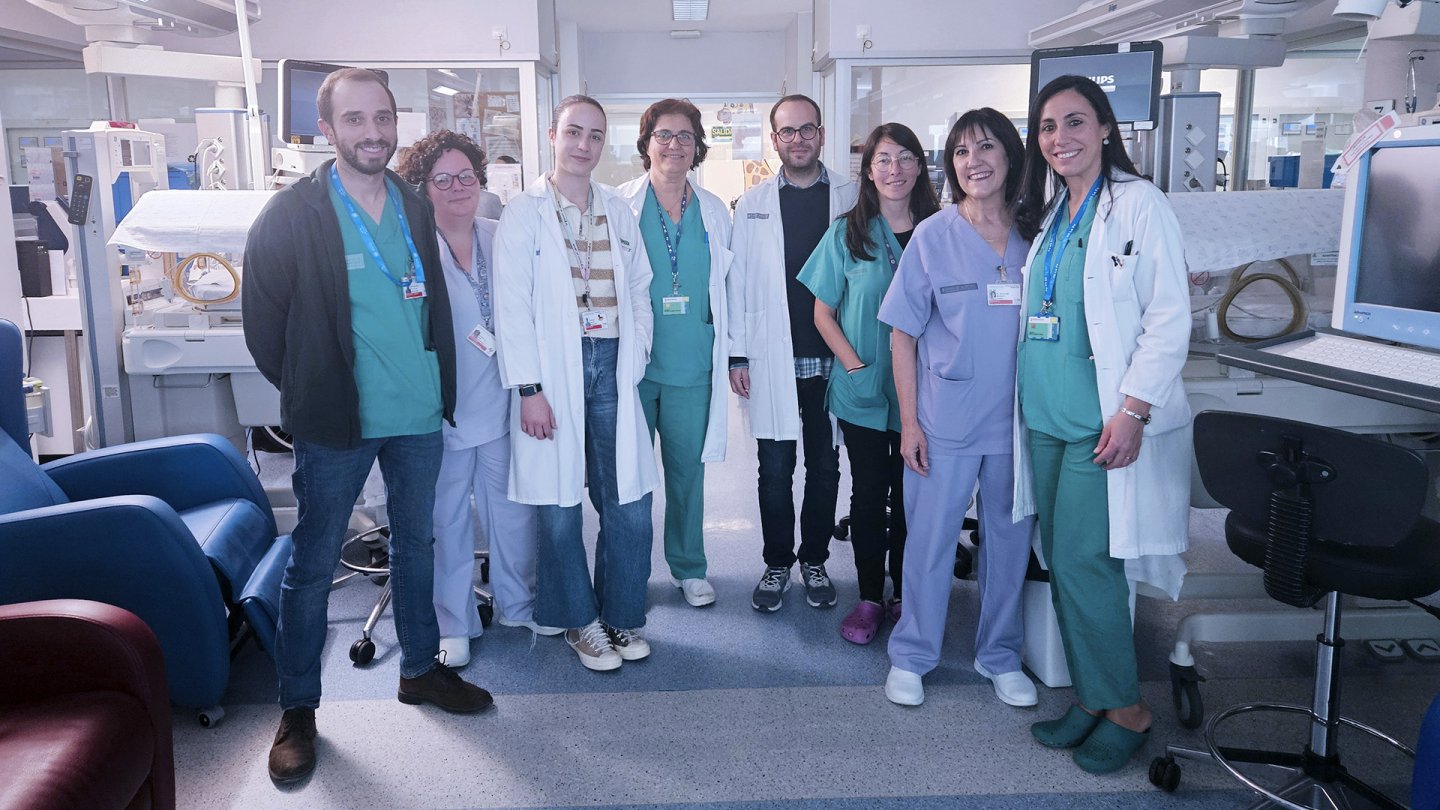News
IIS La Fe demonstrates that 2% alcohol-based chlorhexidine is safe and reduces infections in neonates
The Perinatology Research Group of the La Fe Health Research Institute (IIS La Fe) and the Neonatology Service of Hospital La Fe have led a study confirming the safety and efficacy of 2% alcohol-based chlorhexidine for skin antisepsis in premature neonates.

The research compared the efficacy of alcohol-based and aqueous chlorhexidine in 1,783 neonates and 2,493 catheterisation episodes over two three-year periods. Results show that the alcohol-based formulation is safe and effective, causing no significant skin lesions in preterm newborns, except for mild redness and inflammation. Moreover, it is associated with a lower incidence of catheter-related bloodstream infections (CRBSI).
A change in neonatal clinical practice
Catheter-associated bloodstream infections are common in preterm newborns, given their immature immune systems. Skin antisepsis with chlorhexidine is a key measure to prevent these infections, but until now there were doubts about the safety of alcohol-based formulations in these patients.
"Our results provide evidence that 2% alcohol-based chlorhexidine can be safely used in preterm neonates, even in extremely preterm infants after the first week of life. Its use has been associated with a reduction in catheter-related bloodstream infections, which may contribute to shorter hospital stays and reduced use of antibiotics," explained Dr. María Cernada, IIS La Fe researcher and author of the study.
The study included neonates of all gestational ages, except those under 28 weeks in their first week of life, due to extreme skin immaturity. Both peripherally inserted central catheters and umbilical catheters were included.
Benefits beyond neonatology
The findings of this research may not only improve antisepsis protocols in neonatal units but may also impact other areas requiring the prevention of device-associated infections.
"This evidence could be applied to other specialties where skin antisepsis is essential, such as paediatric surgery," said Alejandro Pinilla, researcher and co-author of the study.
In addition to the direct clinical benefit for neonates, reducing infections implies less antibiotic use, shorter hospital stays, and, consequently, lower healthcare costs. It may also improve long-term neurodevelopment in newborns by minimising the adverse effects of infections and prolonged treatments.
This work represents a step forward in neonatal clinical practice and reinforces the importance of continuing research on infection prevention measures in vulnerable populations.
Pinilla-González, A., Pérez-Fiérrez, L., Solaz-García, A., Torrejón-Rodríguez, L., Parra-Llorca, A., Pérez-Oliver, T., Gimeno Navarro, A., Mocholí Tomás, M. D. L., Ros Navarret, R., Vento, M., Aguar, M., & Cernada, M. (2025). Neonatal skin antisepsis with alcohol-based compared to aqueous 2% chlorhexidine, used in moderate preterm infants or extremely preterm infants after the first week of life, is safe and may be associated with a reduced incidence of catheter-related bloodstream infections. Archives of Disease in Childhood - Fetal and Neonatal Edition, 4(fetalneonatal-2024-327728). https://doi.org/10.1136/archdischild-2024-327728







